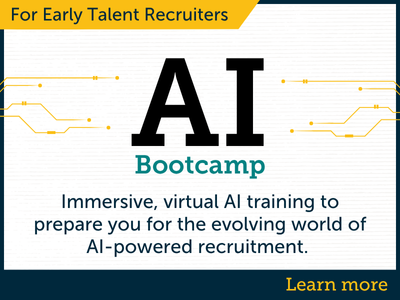Spotlight for Career Services Professionals
Spotlight for Recruiting Professionals
When Tonika East, Ed.D., of Kentucky State University (KSU) is building relationships with employers, she is looking for several key qualities, including authenticity, a shared sense of purpose, and impactful engagement opportunities for students and the university as a whole.
“My goal is to build relationships that go deeper than ‘scratch-the-surface’ measures, such as just posting jobs,” explains Dr. East, associate director of the career and professional development center at KSU, an HBCU in Frankfort, Kentucky.
“When we look to establish a relationship with an employer, we seek to first understand who they are and their needs, followed by us sharing in-depth information about our university, and most importantly, our students.”
In 2020, due to the social justice climate, many companies either started or increased their diversity equity, and inclusion efforts. As a result, KSU, like many HBCUs, experienced an increase in the number of companies seeking to establish partnerships.
“Some companies and organizations that reached out to establish a partnership were unaware of our university’s history, mission, and academic focus areas, so our first step is always to share this information,” says Dr. East.
“We need employers to understand who we are and what we offer, and consider how they can take their relationship with us beyond just attending a career fair or posting jobs. Once we’ve shared information about who we are, we next seek to learn more about our potential partner in order to develop a win-win engagement strategy.”
Part of this strategy for KSU is working to foster long-lasting partnerships with employers.
“Our work is to develop meaningful connections because we have a smaller talent pool,” Dr. East explains.
“Oftentimes, employers don’t understand they are not working with a large career center. We are a two-person staff that is still responsible for all the functions of the typical career center. Many HBCUs have similar staffing limits, but we still manage and connect employers to qualified students candidates.
“That said, we’re located in Frankfort, so to our left is the University of Kentucky and to our right is the University of Louisville, both of which are large research institutions with student populations of more than 20,000. Kentucky State has around 2,000 students. However, due to our size and culture, we are the ‘perfect fix’ for students seeking a smaller and family-like campus culture.”
To attract and meet the needs of employers, Dr. East says the career development office is rebranding, rebuilding, and making sure KSU’s students are prepared to succeed in the workplace.
“We focus on developing the NACE Career Readiness Competencies in our students because these are relevant for all students, no matter what career path they decide to pursue,” she says.
Dr. East stresses that relationships are very important to students at HBCUs because many are first-generation students.
“Building trust is an important part of the recruiting process, and it’s important to foster a positive student-employer relationship once the student is hired,” she notes.
A thorough onboarding process bolstered by a mentor program is highly valued by her students, Dr. East says. Furthermore, affinity groups and employee resource groups are very effective for integrating new employees—especially minorities or members of diverse groups—into an organization.
“Students should know where to go for assistance and the resources that are available to them at the employers they are considering,” she explains, adding that the process of finding out this information should start during the recruiting process.
“Students often forget that they are interviewing the employer as well [when they are being interviewed]. If our students are not asking culture questions—How do you integrate me into work and life here? What resources are available to me?—they are missing the opportunity to gain this important information. They also risk missing the reciprocity that is so important for our students during the interview process, so that when students are in these spaces for the first time, they can continue to develop and foster company relationships.”
According to Dr. East, employers looking to become a stronger presence on an HBCU campus should learn the campus culture and its needs; share information about the company culture and the resources available to its employees; and develop engagement strategies with academic departments and the career center in meaningful ways, such as through classroom presentations, case study projects, sponsorships, advisory boards, tabling events, and career fairs.
“We’ve had success with various companies that developed different engagement strategies to foster their relationships with students at Kentucky State University,” Dr. East points out.
“Humana used a sponsorship approach with our KSU Student Success Academy, while Deloitte created and implemented a mentorship program, and Kroger maximized its alumni network within the company to host a panel discussion for faculty and students. In addition, all three companies participated in other events hosted by the career center that include mock interviews and career fairs.”
Dr. East says HBCUs can be very valuable partners for helping employers meet their hiring and diversity recruiting goals with outstanding candidates.
“At Kentucky State, we’re trying to create levels of engagement to meet employers’ needs,” she explains.
“Just like we ask employers to get to know us better, we need to do the same with them. For example, it’s good for the career development office to know when each employer’s recruiting cycle starts and ends. By having this information, we can prioritize the employer’s needs as well as our own, so we can both benefit from the relationship.”
NACE is helping to facilitate the development of deeper, more meaningful relationships by connecting HBCUs and the employers that sponsored NACE’s HBCU Summit in February through a series of invitation-only roundtables.






